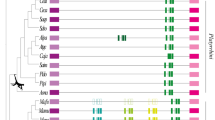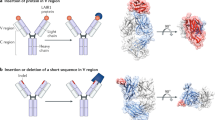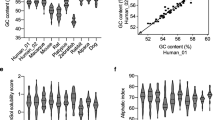Abstract.
Darwinian theory requires that mutations be produced in a nonanticipatory manner; it is nonetheless consistent to suggest that mutations that have repeatedly led to nonviable phenotypes would be introduced less frequently than others—if under appropriate genetic control. Immunoglobulins produced during infection acquire point mutations that are subsequently selected for improved binding to the eliciting antigen. We and others have speculated that an enhancement of mutability in the complementarity-determining regions (CDR; where mutations have a greater chance of being advantageous) and/or decrement of mutability in the framework regions (FR; where mutations are more likely to be lethal) may be accomplished by differential codon usage in concert with the known sequence specificity of the hypermutation mechanism. We have examined 115 nonproductively rearranged human Ig sequences. The mutation patterns in these unexpressed genes are unselected and therefore directly reflect inherent mutation biases. Using a χ2 test, we have shown that the number of mutations in the CDRs is significantly higher than the number of mutations found in the FRs, providing direct evidence for the hypothesis that mutations are preferentially targeted into the CDRs.
Similar content being viewed by others
Author information
Authors and Affiliations
Rights and permissions
About this article
Cite this article
Cowell, L., Kim, HJ., Humaljoki, T. et al. Enhanced Evolvability in Immunoglobulin V Genes Under Somatic Hypermutation. J Mol Evol 49, 23–26 (1999). https://doi.org/10.1007/PL00006530
Issue Date:
DOI: https://doi.org/10.1007/PL00006530




